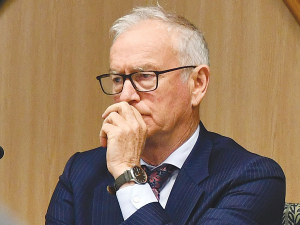Looking back on his tenure as chief executive of Environment Southland (ES), Rob Phillips says education has played a ‘real part’ in the relationship between council and farmers.
He says this has been especially prevalent in the regional council’s compliance activities.
“If you look at what we’re doing around intensive winter grazing – our rural community and the region has done really well in terms of changing our wintering practices, and that’s happened really quickly,” Phillips told Rural News.
The winter grazing regulations came into effect in Southland three years ago.
“We’ve seen a real significant shift in improvement and that’s through us working with industry and farmer groups to do that.
“That hasn’t happened on its own,” he says, adding that there is still work to be done.
“Farmers have changed their ways of wintering in a voluntary way,” Phillips adds. “A lot of the changes happened just by us working with the rural community.”
Last month, ES announced its staff would be heading out into the community to identify potential winter grazing risks to help farmers prepare for the upcoming season.
The council, supported by DairyNZ and Beef+Lamb New Zealand, says it’s looking specifically at cultivated forage and crop paddocks from the air and by land, to identify areas that may pose issues for water quality in winter.
The council’s land sustainability team will follow up directly with farmers identified with higher risk paddocks to ensure there is a plan in place and to offer advice on managing the issues that could arise from these paddocks.
ES says poor intensive winter grazing practices can cause significant damage to Southland’s freshwater quality through sediment and effluent runoff leading to nitrogen, phosphorus and bacteria to waterways.
It can also affect soil structure and health, and in some cases animal welfare.
Phillips retires from the role of ES chief executive in May 2022.



















